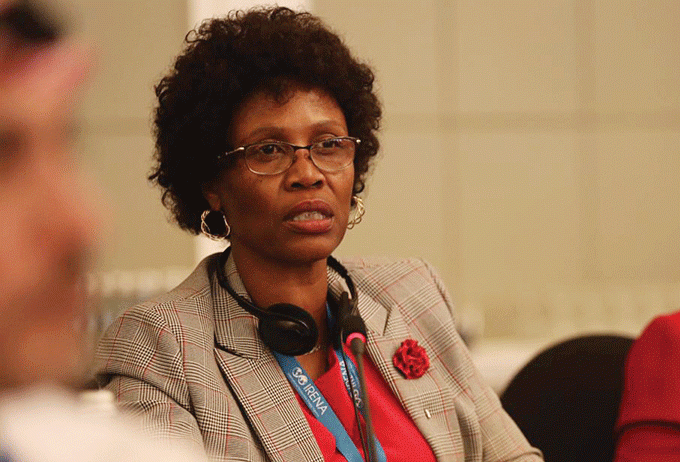
THE Energy and Power Development ministry says it will work to lower the cost of doing business in the renewable energy sector by re-evaluating and effectively benchmarking costs.
The ministry’s permanent-secretary Gloria Magombo said the issue of high costs would be resolved before next year’s conference.
Magombo was responding to concerns raised by independent power producers (IPPs) at the last day of the 6th International Renewable Energy Conference and Expo in Victoria Falls yesterdaya.
The over-subscribed conference was organised by The Standard in collaboration with the Energy and Power Development ministry.
“I would want to say that Zera [Zimbabwe Energy Regulatory Authority] is looking into the costs and trying to efficiently benchmark the pricing as regulator and we are sitting down with them as government so that this issue of high cost of business is addressed, especially given that government has opened up to say you can get an off-taker who is not the utility and it is quite a critical issue for the debate,” she said.
“We have heard you. We will look at that so that next year, it is taken as one of the issues which will come and give a resolution on, to say how do we address this issue. I think I am happy also with the fact that the issue of compatibility is being addressed, but not fully and it keeps popping up.
“We need to sit around the table and address the issue, I am happy that we are talking about it now. We want to make sure that when we go to the 7th edition that this issue will be addressed. So, we will call on the Zimbabwe Investment and Development Agency to be part of the conversation as we move forward.”
She added: “If we need to decide as government to bring in costs which are lower as a way of encouraging investments, that will have to be made at a policy level, but it will happen. We have seen the costs which have been put on the table and the process has to be transparent. So, we will be engaging with all the relevant parties.”
- Power cuts spur Zimbabwe’s green energy revolution
- Power cuts spur Zimbabwe’s green energy revolution
- Electricity imports cost Zimbabwe US$200 million
- ‘Zimbabwe will be a net power exporter’
Keep Reading
Memory Mashingaidze, co-founder and executive director of the Great Zimbabwe Hydro project, called on government to introduce more tax breaks to support the IPPs.
“Sub-small hydro in general is very expensive. What adds to that is the cost of a tax that we have to pay, which makes it even generally high. I think what we did, and I think it was the right decision that we made, is that we tried to procure as much as we can locally,” she said.
“All our civil works were done by local contractors, all our transmission line was done by local contractors, but the pricing of local contractors may not be as competitive as some other markets. I think in general, what we would like to see is how we can reduce the cost of installing these IP projects, and one is putting more of these tax breaks.”
Zimbabwe Independent Power Producers Association chairman Victor Utedzi said bigger projects come with bigger challenges that urgently need to be addressed to support the sector, especially currency issues.
“What are the challenges? Number one, we are now developing projects that are big, and the off-take is always an issue,” he said.
“We have repeatedly stated that payments in Zimdollars will not sustain financing from both domestic and international sources.
“We have seen fatigue among domestic financiers when presenting projects in local currency. They prefer to see growth in US dollar reserves.”
Utedzi noted transmission charges are adding to the burden.
“I would also like to bring up the issue of transmission charges. We believe 1,75 cents per kilowatt-hour is high. Comparative studies show it should be below a cent per kilowatt-hour, with distribution charges added, the total is nearly US$0,05 per kilowatt-hour. If our generation cost is $0.08 per kilowatt-hour, adding transmission charges makes it US$0,13 per kilowatt-hour, which is unsustainable,” he said.
“We see growth potential in commercial and industrial customers, but transmission charges and VAT are significant barriers. A US$90 million project would require an additional US$15 million due to VAT [value-added tax], which is a substantial financing burden.”
He said that another challenge is on repatriation of US dollar payments.
“We need to address two key issues: Reviewing transmission charges and green access charges to facilitate access to green energy and customers willing to pay in US dollars, and resolving currency repatriation issues,” he said.
“Even with US dollar payments, there is a risk of repatriation, which we have discussed with national financiers. Government support is crucial, particularly from the Ministry of Energy and Ministry of Finance.”










